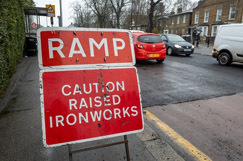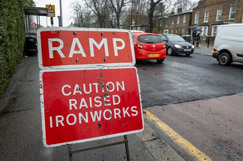Key figures in the sector have called on highway authorities to move on from using trials as a way of circumventing procurement rules and turn carbon reduction innovations into business as usual.
During a panel discussion on carbon at the Road Surface Treatments Association's annual conference last week, Ross Bullerwell, managing director at NY Highways, which is wholly owned by North Yorkshire County Council, noted that many authorities ‘have a strategy, but not necessarily the doing part'.
He said: ‘In North Yorkshire, we've pushed the council to come up with a five-year plan, which is around holding projects to account for what they are delivering.

‘I know there are plenty of suppliers in this room – I've been a supplier for a long time as well – where you almost get sick of the word trial. Can I do a trial? And another trial. In fairness, sometimes you use that for a procurement perspective. Let's face it, we see what we can do to get around it. But the reality is, it's all about getting it embedded.
‘You have to make sure that as part of the strategy, as part of our design, as part of declaring the carbon emergency, you must have year-on-year plans that deliver something. Otherwise, in five years' time, you'll still be doing a little trial; you'll still be doing another trial.'
Picking up on this, a delegate from a supplier company said his firm had done a lot of innovation trials but added, ‘that's where it seems to stop' and asked how innovations become business as usual.
Sean Rooney, head of service for highway maintenance at Oxfordshire County Council responded: ‘We often use trials to get around procurement. We often use trials to convince others, whether they be elected members or even the grey-haired filing cabinets that exist within local authorities.
'So how do we move from business case to business development? It's about giving [suppliers] the opportunity to put it into practice on the ground.
‘So, we actually focus on what is the art of the possible, here and now, business case development. As an organisation, we are happy to do that for you, and working with the supply chain, working with our main contractor, change the attitude of people to actually make it happen.'





























